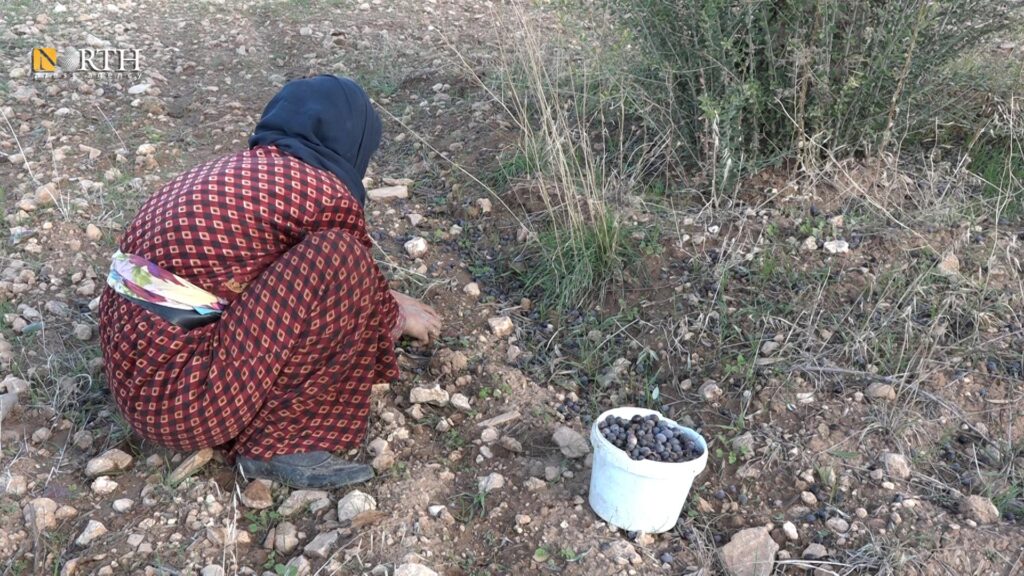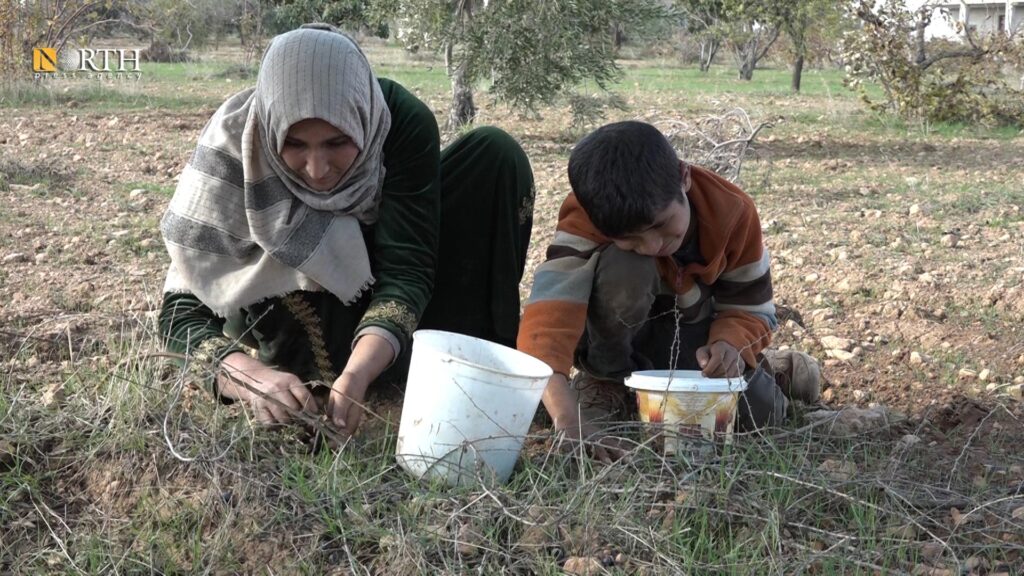KOBANI, Syria (North Press) – Two days ago, Muhammad Melhem started harvesting his olive crop, after postponing it for about 20 days due to Turkish military escalation against Kobani and its countryside, northern Syria, especially against villages on the Syrian-Turkish border.
The farmer, who is from the village of Khorkhoy in the western countryside of Kobani, suffered losses due to that delay, as olives fell due to rainfalls and it has become difficult for workers to collecting them.
The farmer said that the Turkish shells were landing near his land which is only 2 km from the border, raising his fears for his family and forcing him to postpone harvesting until the bombardment subside.
Since November 20, the Turkish forces have escalated their ground and air operations against areas in northern Syria, including Kobani, killing and injuring dozens of civilians, as well as destroying vital infrastructure.
The bombing obliged farmers in Kobani, especially those whose lands are near the border, to postpone harvesting their olive trees, resulting in losses.

Melhem, 52, depends on 1.200 olive trees as a source of living. The man is now forced to collect his olives from ground, which would reduce the production.
Although workers return to lands, they are afraid of the bombardment, as they can hear the sounds of the shelling near them.
Kobani is famous for planting fruitful trees. By the end of 2020, the area planted with fruitful trees in Kobani has reached about 585 hectares with more than 116.000 trees, including about 82.000 olive trees, more than 31.000 pistachio trees and about 3.000 different fruit trees.
Olive production this year have waned in comparison with last year, which in turn affected the produced oil quantities. The Turkish bombing made matters even worse, according to farmers.
The farmers attribute this reduction to the drought that has hit region over the last two years.
Previously, each 5 kg of olive used to produce nearly 1 kg of olive oil. However, this season, each 8 kg of olive could barely produce a kilogram of olive oil.
In the recent Turkish escalation, Khanem Issa, 35, a mother of six children, was forced to stop working.
Right now, Issa exerts more efforts as she picks up olives from the ground. She works as a daily worker in the olive fields.
Workers who pick up olives get their fees either based on working hours or the amount of production; in the latter they earn 250 SYP in return for collecting 1 kg of olive.

The Turkish shelling forced locals of a number of villages on the border with Turkey to leave their villages. However, they have returned to their homes since a relative calm is being observed.
In the bombardment, nearly a thousand of olive trees have been damaged. This has been the case in Seftek, Boban, Selim Khorkhori and Susan, farmers said.
Ali Mamed, 47, a farmer who owns nearly 400 trees in the village of Susan in the western countryside of Kobani, says this year he started harvesting belatedly as workers rejected to work on his field citing fears of Turkish shelling.
Days ago, Mamed, among other farmers, started to harvest his crop. However, the farmer is not optimistic as half of the crop fell from trees.

